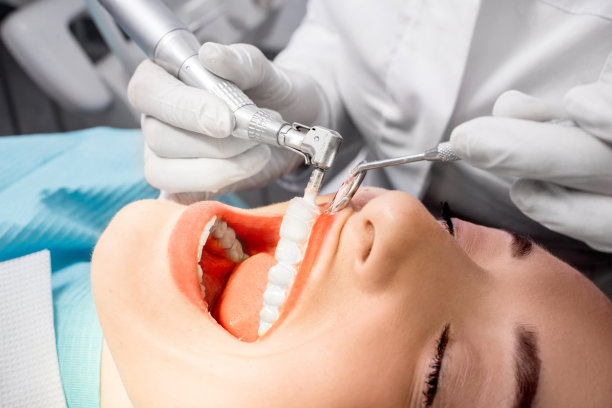Summary: This article explores the transformative power of advanced dental implant treatments in enhancing oral health and restoring confidence. As we delve into the nuances of these innovative procedures, we will examine their benefits, the latest technological advancements, best practices for patients, and the psychological impact on individuals seeking a renewed smile. Each aspect highlights how dental implants not only improve ones oral functionality but also play a crucial role in boosting self-esteem and overall well-being. From understanding the procedure to embracing its effectiveness, this comprehensive overview aims to inform and inspire those considering dental implants as a solution for lasting oral health.
1. Benefits of Advanced Dental Implant Treatments

Advanced dental implants offer a myriad of benefits for those suffering from tooth loss. One of the primary advantages is their ability to closely mimic the appearance and function of natural teeth. Patients often find that implants restore not only their smile but also their capability to eat and speak comfortably. Unlike dentures, which can slip or cause discomfort, dental implants are securely anchored in the jawbone, providing a stable and long-lasting solution.
Another significant benefit is the preservation of jawbone health. When a tooth is lost, the surrounding bone can deteriorate over time due to lack of stimulation. Implants help maintain bone density by providing the necessary stimulation through the chewing process. This not only prevents facial sagging and the "sunken" appearance often seen in those with missing teeth but also contributes to long-term oral health.
Finally, the longevity of dental implants is notable. With proper care and maintenance, they can last a lifetime, offering patients a durable and reliable option compared to traditional restoration methods. This longevity not only saves money in the long run but also gives patients peace of mind knowing they have made a beneficial investment in their health.
2. Technological Advancements in Implant Dentistry
The field of implant dentistry has experienced significant technological advancements in recent years. Techniques such as computer-guided implant surgery have revolutionized the planning and execution of dental implant procedures. This technology allows for precise placement of implants, maximizing efficiency and minimizing recovery time for patients.
Another technological innovation is the use of 3D imaging and scanning. Dentists can now create accurate digital models of a patient’s mouth, allowing for customized treatment plans tailored to individual needs. This personalized approach enhances the accuracy of implant placement and improves overall patient satisfaction.
Additionally, advancements in materials science have led to the development of more biocompatible and durable implant materials. Modern implants are often made from titanium or zirconia, which not only integrate well with bone but also reduce the risk of complications. These materials mimic the properties of natural teeth closely, resulting in seamless and aesthetic outcomes.
3. Best Practices for Patients Seeking Dental Implants
Patients considering dental implants should adhere to several best practices for optimal results. Firstly, thorough consultation and evaluation with a qualified dental professional are crucial. This step includes assessing dental and medical histories, as well as conducting imaging studies to determine the best approach.
Secondly, patients are encouraged to maintain good oral hygiene both before and after the procedure. Proper brushing, flossing, and regular dental check-ups can significantly influence the success of dental implants. Healthy gums and teeth are necessary prerequisites for effective implant placement.
Finally, understanding the post-operative care and following the dentists guidelines is vital. Patients should be aware of any dietary restrictions and the importance of avoiding certain activities that could jeopardize the healing process. By adhering to these practices, patients can maximize the longevity and success of their implants.
4. Psychological Impact of Restoring a Smile
The psychological benefits of advancing to dental implants cannot be overlooked. Many individuals who experience tooth loss may suffer from low self-esteem and social anxiety. The inability to smile or speak confidently can lead to significant emotional distress. Dental implants have the potential to restore not only smiles but also confidence and a sense of self-worth.
Numerous studies have shown that individuals who undergo dental implant procedures report marked improvements in their quality of life. Patients express relief from the embarrassment associated with missing teeth and speak about the renewed joy in social interactions. This restoration of normalcy enhances not only personal relationships but also professional opportunities.
Furthermore, patients who regain the ability to chew and speak normally often experience a spillover effect into their overall mental health. Enjoying favorite foods and engaging in conversations can lead to increased happiness and satisfaction in life. Thus, dental implants are not just a functional solution but a pathway to emotional well-being.
Summary:
In summary, advanced dental implant treatments are revolutionizing the way we approach tooth loss, offering significant benefits in both oral health and psychological restoration. With continued advancements in technology and best practices, patients can achieve lasting results that go beyond the cosmetic, fostering confidence and improving overall well-being. The journey toward a restored smile is not only about aesthetics but also about reclaiming one’s life.
This article is compiled by Vickong Dental and the content is for reference only
Vickong Dental
Vickong Dental is a large medical group established in Hong Kong in 2008 by professors from well-known medical universities in Guangdong and Hong Kong, as well as medical doctors from key national '985' universities (including Master's supervisors and senior professors). The chain of branches brings together expert dentists with PhDs and Master's degrees from Hong Kong and Mainland China, committed to providing high-quality dental treatment.
"Vickong Dental Practices the University Motto of 'Healing and Serving Society,' with a Stable Operation for Sixteen Years. It Has Been honored with Hong Kong Enterprise Leaders's Choice,' and is a Global Trusted Implant Center for the Nobel Implant System. Recommended by Hong Kong Metro Broadcast and Guangdong Television, it Serves Customers from Over Thirty Countries and Regions, Gaining the Trust and Favor of Citizens from the Guangdong-Hong Kong-Macau Greater Bay Area and Surrounding Cities.

Thousands of customers' unanimous praise
The most recognized and highly recommended dental service by customers in the Guangdong-Hong Kong-Macau Greater Bay Area
We Ensure You Receive Detailed Care and Attention Here
Hong Kong standards, Shenzhen prices, Your Trusted English-speaking dentists

Vickong Dental Medical-Grade Instrument Disinfection Process
Vickong Dental Medical-Grade Instrument Disinfection Process

Vickong Dental Chain: A Warm and Comfortable Environment for Treatment






Appointment Hours

Q&A
Why choose Vickong Dental?
Vickong Dental practices the university motto 「Medicine to Benefit Society」, with each branch bringing together highly qualified dentists with doctoral and master’s degrees from Hong Kong and the Mainland, and has maintained seventeen years of steady operation。Recipient of 「2024 Hong Kong Enterprise Leaders Brand」, 「2025 Hong Kong Enterprise Leaders Brand」, a Nobel Biocare Global Trusted Implant Center, and a brand recommended by Metro Radio Hong Kong and Guangdong TV。
To date, we have served customers from more than thirty countries and regions,earning exceptionally high word-of-mouth recognition and trusted recommendations from residents across the Guangdong-Hong Kong-Macao Greater Bay Area and surrounding cities
We have eight major branches in Zhuhai、Shenzhen,and a consultation and service assurance center in Hong Kong,so you can book a free consultation at any time for any questions,which is very reassuring.
If I do not accept the quotation after the CT scan, will I be charged??
No! As long as the actual treatment has not started, you will not be charged any fees.
Will there be any additional charges during the treatment process?
No, there won’t be any additional charges. Before treatment begins, we will clearly explain the treatment plan and its corresponding fees. Only after the patient agrees and signs the consent form will we proceed with the dental service.
Can I pay in Hong Kong dollars?
Yes. Vickong Dental accepts payment in Hong Kong dollars. The amount will be converted based on the exchange rate of the day, and the applicable rate will be clearly communicated to you in advance.
Can I reschedule my appointment at any time?
Yes. Please contact us via **WeChat** or **WhatsApp** as early as possible, providing your original appointment time and details, along with your preferred new date and time slot for rescheduling.













